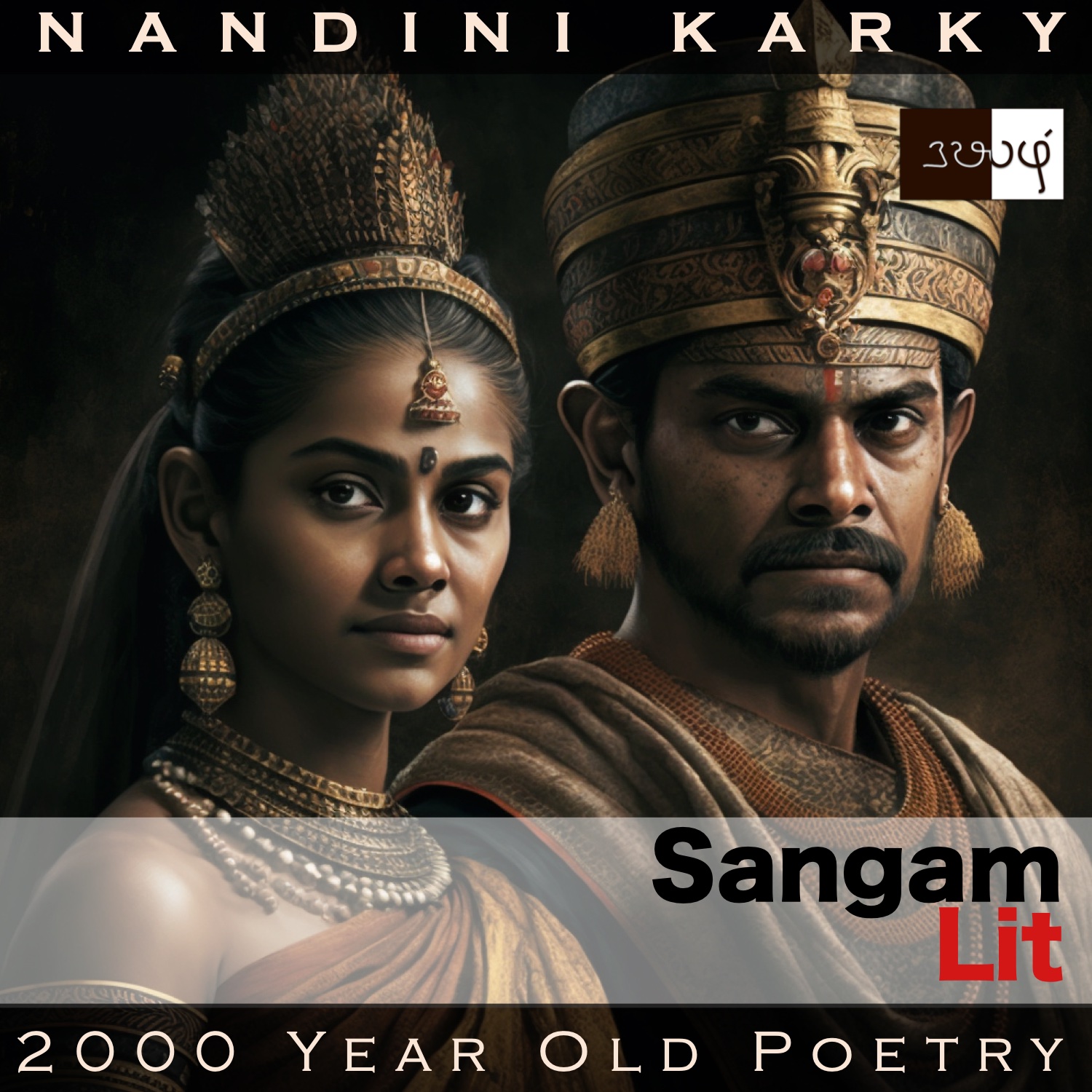Podcast: Play in new window | Download
Subscribe: Apple Podcasts | Spotify | Amazon Music | Android | iHeartRadio | Email | TuneIn | RSS | More
In this episode, we hear of an ironic life situation, as portrayed in Sangam Literary work, Puranaanooru 122, penned about the Velir King Malaiyamaan Thirumudi Kaari by the poet Kabilar. The verse is situated in the category of ‘Paadaan Thinai’ or ‘King’s praise’ and brings out the riches of the land and the respect the king commanded.

கடல் கொளப்படாஅது, உடலுநர் ஊக்கார்,
கழல் புனை திருந்து அடிக் காரி! நின் நாடே;
அழல் புறந்தரூஉம் அந்தணரதுவே;
வீயாத் திருவின் விறல் கெழு தானை
மூவருள் ஒருவன், ‘துப்பு ஆகியர்’ என,
ஏத்தினர் தரூஉம் கூழே, நும் குடி
வாழ்த்தினர் வரூஉம் இரவலரதுவே;
வடமீன் புரையும் கற்பின், மட மொழி,
அரிவை தோள் அளவு அல்லதை,
நினது என இலை நீ பெருமிதத்தையே.
A different technique of praising the king in this one! The poet’s words can be translated as follows:
“The sea cannot carry it away; Enemies will not think to covet it; O Kaari, wearing well-crafted warrior anklets on your fine feet, your country belongs to those priests, who tend to sacrificial fires; Each of those three great kings with unending wealth and brave armies, wanting your support, send emissaries with precious gifts, and these in turn, belong to those supplicants in your land, who come singing your praises. Akin to the unswerving north star is the chastity of your woman with innocent words, and other than her arms, there’s nothing that you can call yours, and feel proud about.”
Let’s explore the details herein. The poet starts by talking about the formidable defences around the country, protecting it both from nature and man, and declares the land cannot be taken away by the rising sea or by enemy armies. While that is so, the land entire still belongs to priests, who take care of the sacrificial fires, the poet informs us. The significance of this line, we’ll explore in a short while. Next, the poet talks about how the three great kings, Chera, Chola and Pandya rulers keep sending their messengers to King Kaari’s court with plentiful gifts, hoping to earn his support. Even though endless gifts keep pouring this way, they all actually belong to poets and performers, who arrive at the king’s court, singing his praises. The only thing that belongs to this king seems to be the shoulders of his queen, the chaste and innocent one, the poet concludes.
I wish to zoom on to two important details in this song. One is, the habit of kings to glorify priests and how they shower a lot of wealth and importance to them. In this case, the king seems to have endowed his entire country to these priests. However, this is no rare event in the ancient world. We see the same happening in the civilisations of Egypt and Mesopotamia as well. All this arises with human beings, turning to agriculture, which results in accumulation of wealth in the hands of a few. And, towards them, gravitate others such as the priests, who provide further means of strengthening the artificial construct of one man’s superiority over the masses. The other detail evident in this verse is how the woman is considered as a possession of the man. Scholars from previous centuries interpret it as how the king’s consort is not one of those things that he can give away and talk of it as a positive thing but there is injustice here, in that a woman is considered not a person of her own but another’s belonging. I read that in early hunter-gatherer societies, there’s evidence of gender equality and true egalitarianism. Amazing how the advent of agriculture, which no doubt is at the base of all human progress, has led to these unsavoury by-products. Perhaps, people of the future will find a way to enjoy the boon of progress while removing these banes of division and inequality.




Share your thoughts...